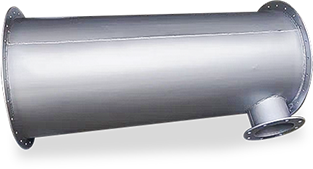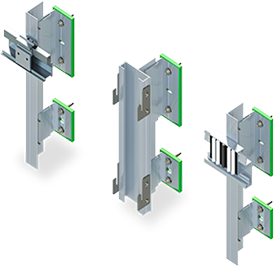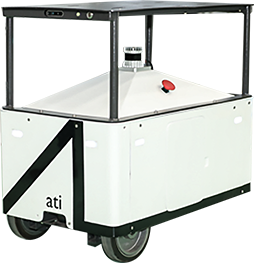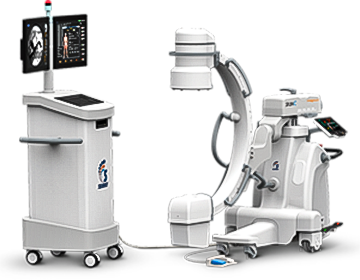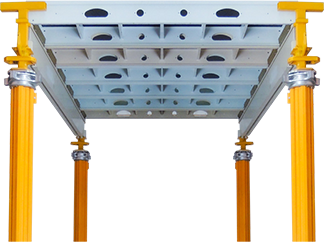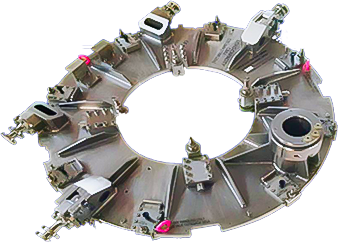
The science fiction that talked about robots building robots is now a reality in the robotics world. 3D printing has over the years evolved and spread across almost every sector and is now used to manufacture robots.
Different 3D printing technologies are being used to manufacture robots with SLA (stereolithography) being used extensively to manufacture soft robots.
In this blog, we explore the process of stereolithography and other 3D printing technologies used to manufacture robots.
What is stereolithography?
Stereolithography is a vat photopolymerization process in 3D printing which uses UV light to solidify resin and create models, prototypes, and other shapes. The 3D printer consists of a resin tank which uses the resin material based on the output needed and solidifies it based on the inputs fed to the printer.
Use of stereolithography in soft robotics
Soft robotics is a division of robotics that deals with robots made of materials similar to living organisms. These are extensively being used in the medical field to assist paralysis patients with robots that imitate human functions.
Soft robotics is used for several applications, including:
- Manufacturing biomedical robots
- Prosthetic robots
- Robots that assist in surgeries
- Climbing robots
- And more
Benefits of choosing stereolithography for soft robotics
There are numerous processes for manufacturing robots, but stereolithography is usually preferred in the case of 3d printing in robotics because of reasons including:
- Fast turnaround time: Time plays a big role, especially in the case of medical robots. SLA can manufacture even the most complex of robots quickly.
- Isotropy: SLA can produce complex designs with high accuracy at scale
- Customisations: Specific needs are the need of the hour, especially in the medical field, where customisation for particular patient needs can be crucial. SLA makes these customisations possible.
- Variety of materials: SLA 3D printing process can manufacture using various materials, including different types of resins and more.
- Water and heat resistance: Due to various material types, stereolithography can manufacture robots made from water and heat-resistant materials.
- Smooth surface finish: SLA processes help you produce aesthetic end products.
Other 3D printing processes used
Soft robotics is not limited to SLA but uses other 3D printing techniques, including:
- Direct ink writing
- Powder bed fusion
- Selective laser sintering
- Material jetting
- Shape deposition modeling
Karkhana.io – partner for SLA and other 3d printing manufacturing processes
Startups and companies have to make a number of decisions before manufacturing their robots. Consulting manufacturing experts at these stages is crucial as every decision directly impacts the end product’s success (the robot in this case).
Our flexible manufacturing services enable us to service client orders of all sizes from small batches to large volumes. We also help many of our clients in solving complex product assembly and localization problems.
We cater to every manufacturing need across industries like Aerospace, Automation, Automobile, Defence, Drone, Energy, EVs, FMCG, General Engineering, Medical, Oil & Gas, Pharma, and Robotics.
We at Karkhana.io help a lot of companies manufacture sophisticated robots. We can help you get access to our vast network of engineers, designers, suppliers, and other manufacturing experts for manufacturing processes, including CNC machining, SLA 3d printing, Sheet metal fabrication, Injection moulding, and Vacuum casting.
Companies that we have helped in the past include:
- Solinas.in in manufacturing a pipeline crawler bot that inspects underground pipeline leaks, contamination, and other critical defects
- Ati Motors in manufacturing an autonomous, electric tug that moves trolley payloads
- Peer Robotics in manufacturing a Collaborative Mobile Robot for shop floor and inventory warehouse
- WCB Robotics in manufacturing wall climbing robots for window cleaning service provider companies, and
- Rymo in manufacturing a multifunctional physiotherapy device
Based on the modern requirements and challenges of companies, we have developed our digital manufacturing platform. Using the platform, you can access end-to-end project management, DfM feedback via our expert engineers, regular QC, audits of suppliers, logistics, payments, solutions for product assembly, product localisation, sharing project files within your organisation on the platform dashboard, viewing your CAD files, and more.
If you are interested in rapid SLA and 3d printing manufacturing, get in touch with us today.
Our top-of-the-line 3d printing services include world-class Direct Metal Laser Sintering (DMLS), Fused Deposition Modelling (FDM), Multi-jet fusion, Polyjet, Selective Laser Sintering (SLS), and Stereolithography (SLA) services.
Let us help you reach the optimal outcome for all your manufacturing requirements. To get started, simply email Alay Shah on alay@karkhana.io with your requirements or fill out the form below.




